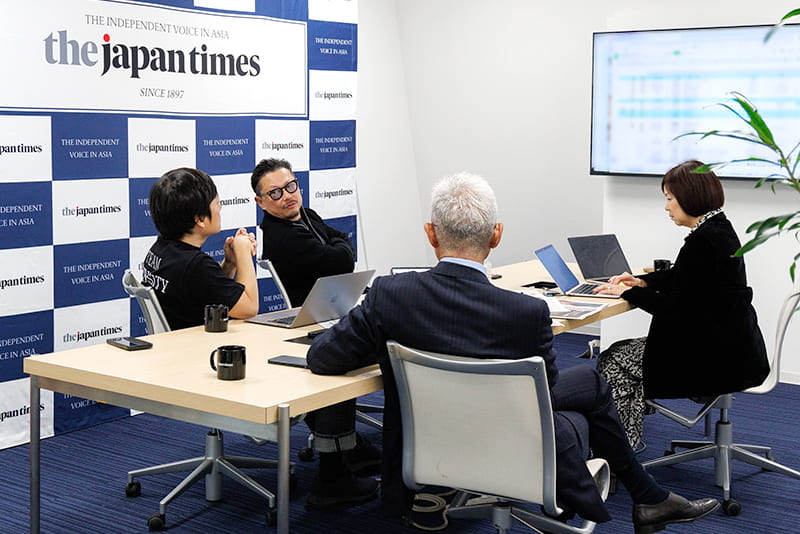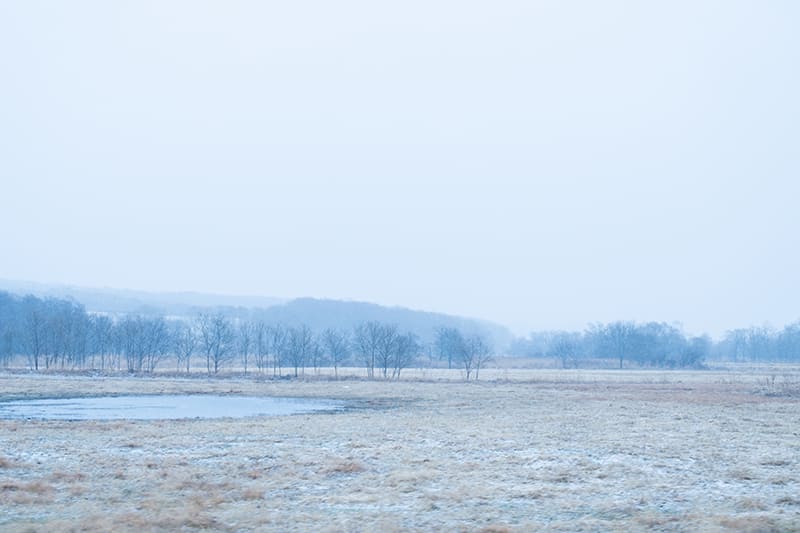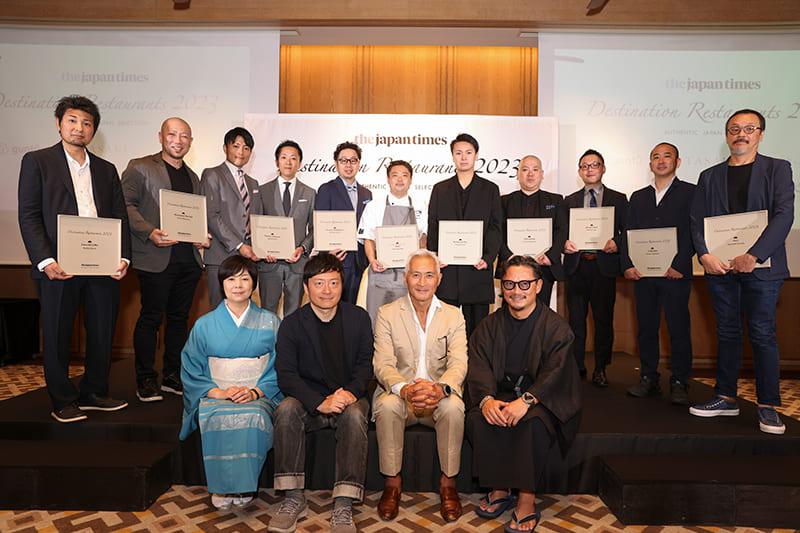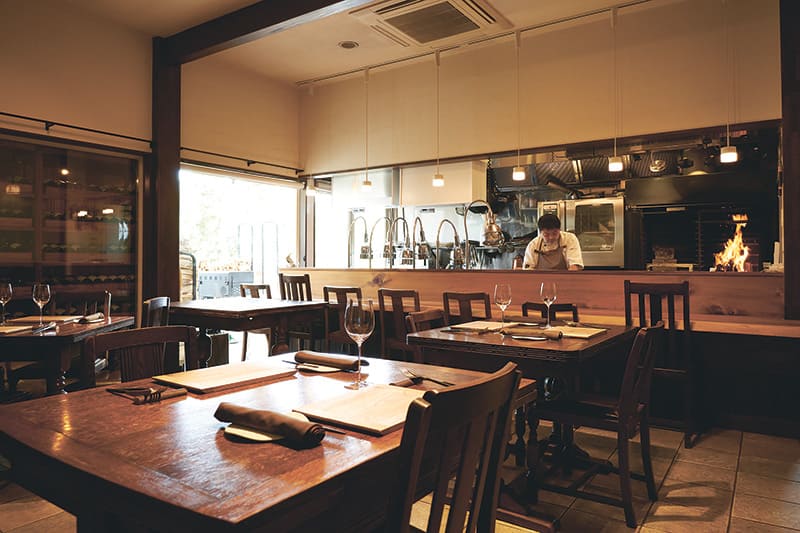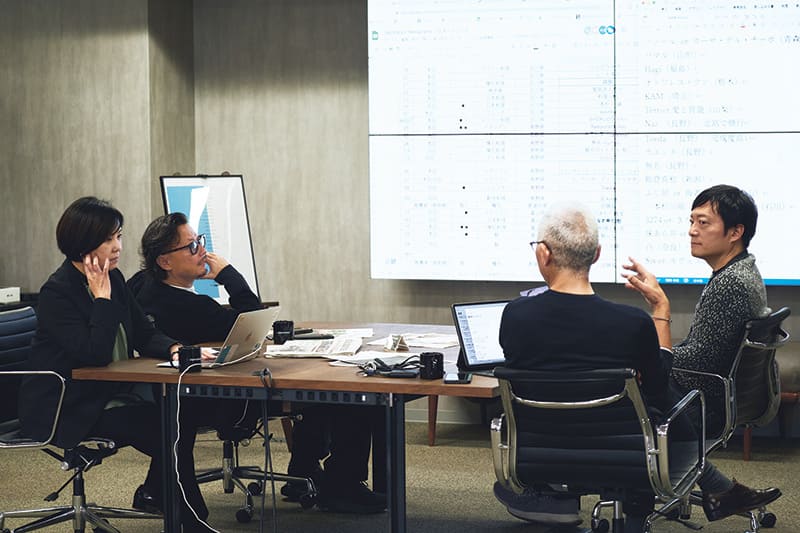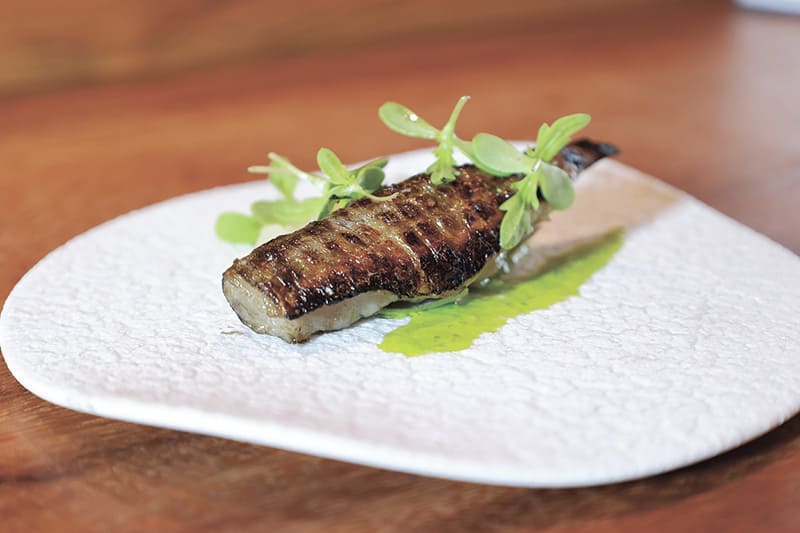June 23, 2023
Cooking starts in the soil, not in the kitchen
INTERVIEW
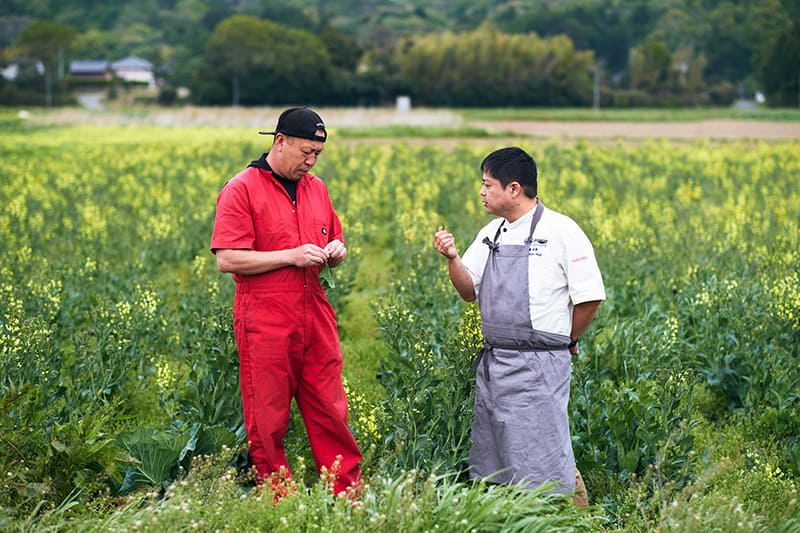
PHOTOS: KOUTAROU WASHIZAKI
HARUTOMO HAGI
Born in Iwaki, Fukushima Prefecture, in 1976. Graduated from the Tsuji Culinary Institute French School. After training in France, opened the French restaurant Bellecour in 2000. In August 2011, reopened it as the innovative restaurant Hagi. In 2013, represented Fukushima in a Paris food fair, cooking for President Francois Hollande and other state guests at the Elysee Palace. In 2014, was named a Ministry of Agriculture, Forestry and Fisheries Ryori Master, and in 2020, won the Ryori Masters Silver Prize.
In August 2011, a French restaurant in Iwaki, Fukushima Prefecture, reopened under the name Hagi, serving innovative cuisine and upping the price of its prix fixe dinner almost fourfold from ¥5,000 ($35) to just under ¥20,000. Chef and owner Harutomo Hagi said that at the time, everyone asked him what he was thinking. No wonder. Following the earthquake, tsunami and nuclear disaster just five months earlier, customers had stopped coming to restaurants in Iwaki, and supplies of locally grown food had dried up. Hagi said he was able to make such a daring decision despite this situation because he had met a group of local producers, including Nagatoshi Shiraishi, a grower using natural farming methods at Shiraishi Farm in Iwaki.
“Just before summer started, I’d gotten some tomatoes from Shiraishi-san that were incredibly delicious,” he recalled. “When I asked him how he grew them, he said, ‘In the weeds, the natural way.’ That startled me. I realized I didn’t know anything about the ingredients I was using.”
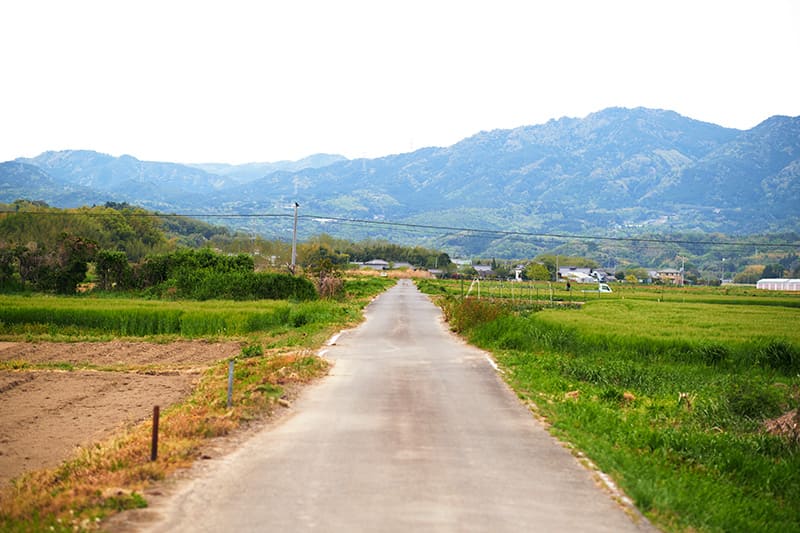
Hagi started helping in Shiraishi’s fields every day and learned what vegetables tasted like from the moment they sprouted until they rotted away. He realized that cooking begins not in the kitchen but with the nurturing of good soil, and that vegetables are flavored in the field.
“Farmers have built the soil and selected good varieties over hundreds of years. They do the same thing as chefs,” he said. “Also, when you eat vegetables every day in the field, there are moments when they taste incredibly delicious. But the very next day, they’re no good. Farmers know that. I want people to taste that delicious moment. How do we control the moment when food is at peak energy? When I think about that, I feel like the only option is to prepare food simply. There’s power in simplicity. Shiraishi-san once said to me: ‘Fertilizer is like seasoning for the soil. You can eat with seasoning or without it.’ If you have good ingredients, they taste good as they are. I started to think I didn’t need to do all that much to my ingredients. I was already creating seasonal cuisine simply by combining ingredients, but I decided to engage with the ingredients more seriously, without limiting myself to the genre of French cuisine.”
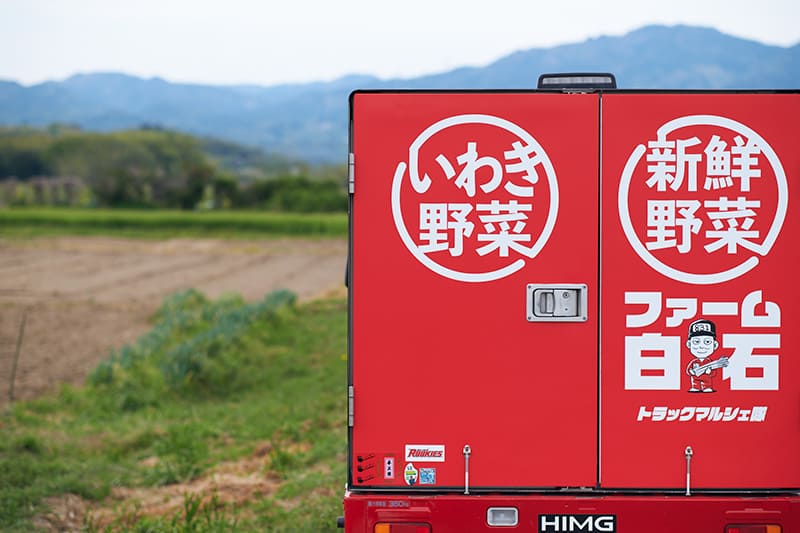
Other farmers told Hagi they disliked when chefs requested low-quality vegetables despite the great care the farmers devoted to growing produce. Through Shiraishi, Hagi came to know many producers.
“Consumers were avoiding food grown in Fukushima because of the nuclear disaster, and producers were wondering if anyone would want their vegetables, or if they could even continue growing here at all,” he said. “But that was exactly why I decided to buy ingredients for a fair price without haggling and return the profits to the producers, and to cook simple food that highlighted the ingredients and wasn’t limited to French cuisine.”
From then on, Hagi began partnering with Shiraishi and other producers to speak out about local food, and the media started paying attention. In 2013, Hagi became the first Japanese chef to cook in the kitchen of the Elysee Palace, the residence of the French president, and received high praise for his cooking from the president of the Netherlands. The ingredients he cooks with in Iwaki are just as good as the luxurious ingredients he used in Paris. They feature front and center in all 15 courses he serves.
“When diners tell me something is delicious, I pass that on to the producer. It encourages them and they learn what people like, which guides what they produce.”
This, in turn, improves the quality of ingredients and of Hagi’s cooking. As his restaurant’s reputation rises, more guests come from other prefectures and overseas, spreading the word about the quality of food produced in Fukushima. People are no longer buying vegetables, meat and fish from Fukushima to support disaster survivors; they are buying it because it is good food. Who could have imagined this future immediately after the triple disaster of 2011? Thanks to these changes, more vegetable, meat and dairy farmers are stepping into the public eye. The menu at Hagi bursts with this positive power of revival.
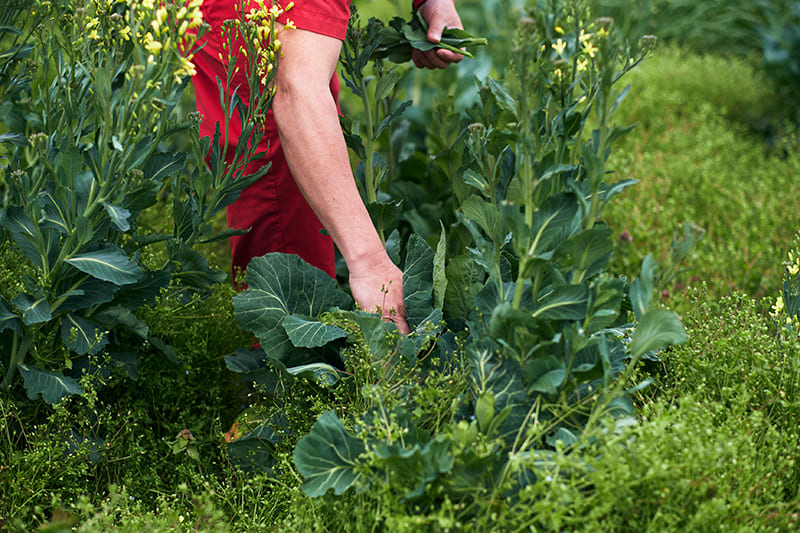
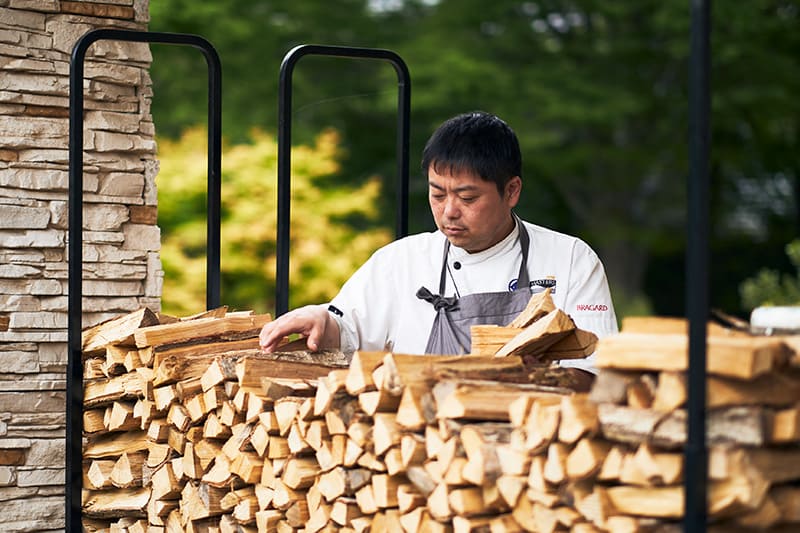
いわき市の生産者と二人三脚で作る料理。
2011年8月、ディナーコース5千円から2万円弱へと大幅値上げに踏み切った。東日本大震災直後の大変な時期に思い切った決断をしたのは、同市内で自然農法で野菜を栽培する〈ファーム白石〉代表・白石長利との出会いがきっかけだった。毎日、白石の畑で作業を手伝い、発芽して朽ちるまでの野菜の味を学んだ。
「原発事故の風評被害もあり、ここで野菜をつくり続けられるのか、という思いを生産者みんなが抱えていました。そこで、値切ったりせず、正当な価格で食材を仕入れて生産者に利益を還元し、フランス料理にとらわれることなく、素材を活かす料理をつくろうと決めたのです」
2013年には仏大統領官邸エリゼ宮で料理を振る舞った。レストランの評判が高まるにつれて、他府県や海外からも人が来るようになり、福島でとれる野菜や肉、魚が、一時の「食べて応援」ではなく、「いいものだから」という理由で売れるようになり、地元のカリスマ農家も増えてきた。『ハギ』のコースには、そんな復興へのパワーがみなぎっている。
Return to Sustainable Japan Magazine Vol. 25 article list page

